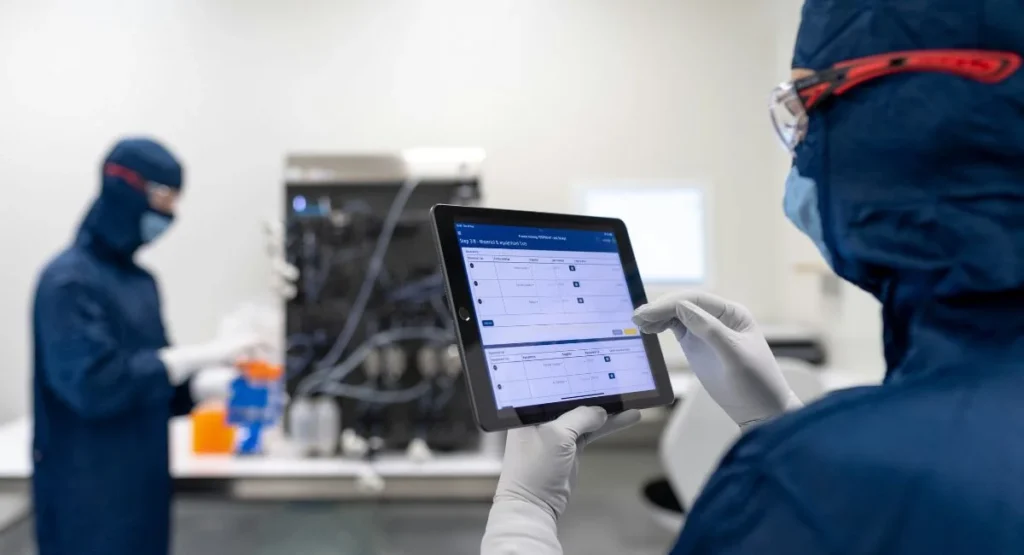
Is AI Actually Shaping the Future of Medicine?
As a software engineer creating and marketing Sehat Pro on the Sehat Website, I frequently hear one giant question: “Where is AI actually going in healthcare?” Physicians, clinics, and small hospitals nationwide desire tools that do not merely sound high-tech but actually assist in actual practice.
With AI already automating procedures, reading scans, and predicting results, what’s next? This blog walks you through the future of AI in medicine — not merely what is possible, but how it relates directly to your practice.
Let’s see where AI is headed, and how Sehat Pro is your savvy investment into that future.
1. Smarter Diagnostics: Will AI Be the Next Diagnostic Partner?
AI is already helping with X-rays, MRIs, and lab test interpretation. But what about the future? Predictive diagnostics and real-time monitoring of symptoms.
Future Trends:
- Predictive modeling from genetic, behavior, and lifestyle information.
- Real-time anomaly detection from wearable data and patient records.
- Remote AI-guided pre-diagnosis, offloading in-clinic burden.
This translates into physicians receiving a second opinion — not from another physician, but from AI which is learning from millions of international cases. And with Sehat Pro, small clinics can access this force at a low cost.
2. Personalized Medicine: Will AI Be Able to Customize Treatments Like Never Before?
Generic treatments are disappearing. Precision care is the future — providing each patient with a treatment that is matched to their biology, not general statistics.
What to Expect:
- AI interpreting genetic reports to recommend personalized therapies.
- Predictive responses to medication based on patient history.
- Machine-learning alerts for dosing changes in chronic management.
Sehat Pro is in development to enable this future, providing dashboards for patients where AI-created care plans can be seen and personalized by physicians.
3. Virtual Health Assistants: Are They Replacing the Front Desk?
Virtual assistants are transforming from chatbots into complete digital companions. Over the next few years, these assistants will:
- Perform pre-consultation interviews.
- Prompt patients to take medication.
- Manage post-op or chronic conditions remotely.
These assistants aren’t intelligent— they’re empathetic and chatty. With Sehat Pro, clinics can integrate AI-powered assistants into their workflow, freeing up staff time and enhancing patient satisfaction.
4. AI and Mental Health: Will the Next Therapist Be an Algorithm?
Mental health need is on the increase, and AI is filling the gap with emotion-detection, sentiment analysis, and even chat companions built on CBT.
How It’s Changing
- Monitoring of speech/text for indicators of depression or stress.
- Leading patients through exercises and therapeutic journaling.
- Notifying professionals when intervention is required.
Sehat Pro’s future plans involve AI modules for simple mental health screening, assisting physicians in identifying warning signs early on — even in routine consultations.
5. AI-Powered Remote Patient Monitoring: How Far Can We Go?
Remote care is spreading — particularly post-COVID — and AI is at its center.
Innovations on the Horizon:
- 24/7 wearables monitoring with AI-driven alerts.
- Automated reports from blood pressure, sugar, and ECG monitors.
- AI alerting emergencies from real-time data — before the doctor is even consulted.
- Sehat Pro is connected to wearable APIs and cloud storage that allow real-time updates straight into the doctor’s dashboard.
6. Autonomous Surgical Assistance: Do Robots Have the Ability to Think with Surgeons?
Though completely autonomous surgeries are a rarity as of yet, AI will soon be aiding with:
- Pre-operative planning through 3D scans and tissue information.
- Assisting surgeons through precise alerts on deviations during sensitive procedures.
- Predicting post-op recovery based on procedure data analytics.
AI will improve surgeon precision, minimize risks, and optimize operations — even in small clinics with the modularity of tools provided by platforms such as Sehat Pro.
7. Medical Imaging Revolution: Will AI Be the New Radiologist’s Best Friend?
- Imaging is undergoing a revolution. AI doesn’t merely detect — it learns and predicts.
- Soon, AI will deliver automated second opinions along with confidence scores.
- Real-time video scan interpretation.
- Anomaly highlighting not seen by human eyes.
Sehat Pro intends to provide AI imaging API plug-in compatibility to deliver big-tech tools for small hospitals without big budgets.
8. AI and Administrative Efficiency: Is This the End of Paperwork?
Physicians are tired not of patients, but of paperwork.
Here’s what AI is changing:
- Auto-fill EHRs from conversation notes.
- Automatically creating follow-up summaries.
- Voice-to-text charting that is accurate and quick.
Sehat Pro already features voice-entry notes and smart appointment scheduling, and upcoming versions will provide AI-created visit summaries, eliminating hours of documentation.
9. AI in Drug Discovery & Clinical Trials: Can It Reduce Development Time?
This is huge for pharma, but even clinics see benefits from quicker access to new drugs.
Here’s how AI works:
- Forecasting how various patients are likely to respond to trial medicines.
- Aligning patients with active trials based on health information.
- Modeling outcomes to improve medications more quickly.
Sehat Pro could soon add trial-matching AI for clinics, facilitating patient connections to advanced treatment while simplifying recommendations.
10. Ethical AI: Can We Trust the Machines?
With all this capability, comes a legitimate question: What about ethics?
Sehat Pro and similar platforms are required to build in:
- Bias checking into AI choices.
- Consent frameworks for AI use.
- Audit trails for AI recommendations.
That is why we are building Sehat Pro to be compliant, transparent, and secure, so you have full control over how AI is applied in your practice.
Why Sehat Pro Is Built for the Future?
As the software engineer behind Sehat Pro, I understand that doctors don’t need “fancy tools” — they need solid, scalable, intelligent solutions. Sehat Pro isn’t designed for today only; it’s being crafted to embrace tomorrow’s AI future.
Why Doctors, Clinics & Small Hospitals Love Sehat Pro:
✅ Simple AI integrations
✅ Real-time dashboards
✅ Features ready for the future
✅ Data privacy integrated
✅ Affordable for all practice sizes
Conclusion: The Future Isn’t Coming. It’s Here.
AI healthcare is no longer a dream. It’s already revolutionizing the way we diagnose, monitor, treat, and manage patients. The question is: Are you prepared for it?
With applications such as Sehat Pro, even a small clinic in a rural town can have access to AI-powered features that were previously only available to corporate hospitals.
Frequently Asked Questions (FAQ)
AI is set to revolutionize diagnostics by enabling earlier and more accurate detection of diseases through advanced image recognition, predictive analytics, and natural language processing. For example, AI algorithms can detect cancer, neurological disorders, and cardiovascular issues from scans and lab results faster than traditional methods.
No, AI is not expected to replace doctors but to augment their capabilities. AI assists in decision-making, administrative tasks, and analysis, allowing healthcare professionals to focus more on patient care and complex judgment-based tasks that require human empathy and experience.
AI will be central to personalized medicine by analyzing genetic, lifestyle, and clinical data to tailor treatments to individual patients. This can improve outcomes and reduce adverse drug reactions by predicting how a specific patient will respond to certain therapies.
AI-powered tools can help bring medical expertise to underserved areas through remote diagnostics, virtual consultations, and low-cost mobile health apps. This reduces the dependency on physical infrastructure and expands access to quality care.
With platforms like Sehat Pro, adopting AI-assisted robotic solutions is now more affordable and accessible. The system is designed to work with scalable budgets, offering flexible modules tailored to the needs and capacity of small clinics and hospitals.



